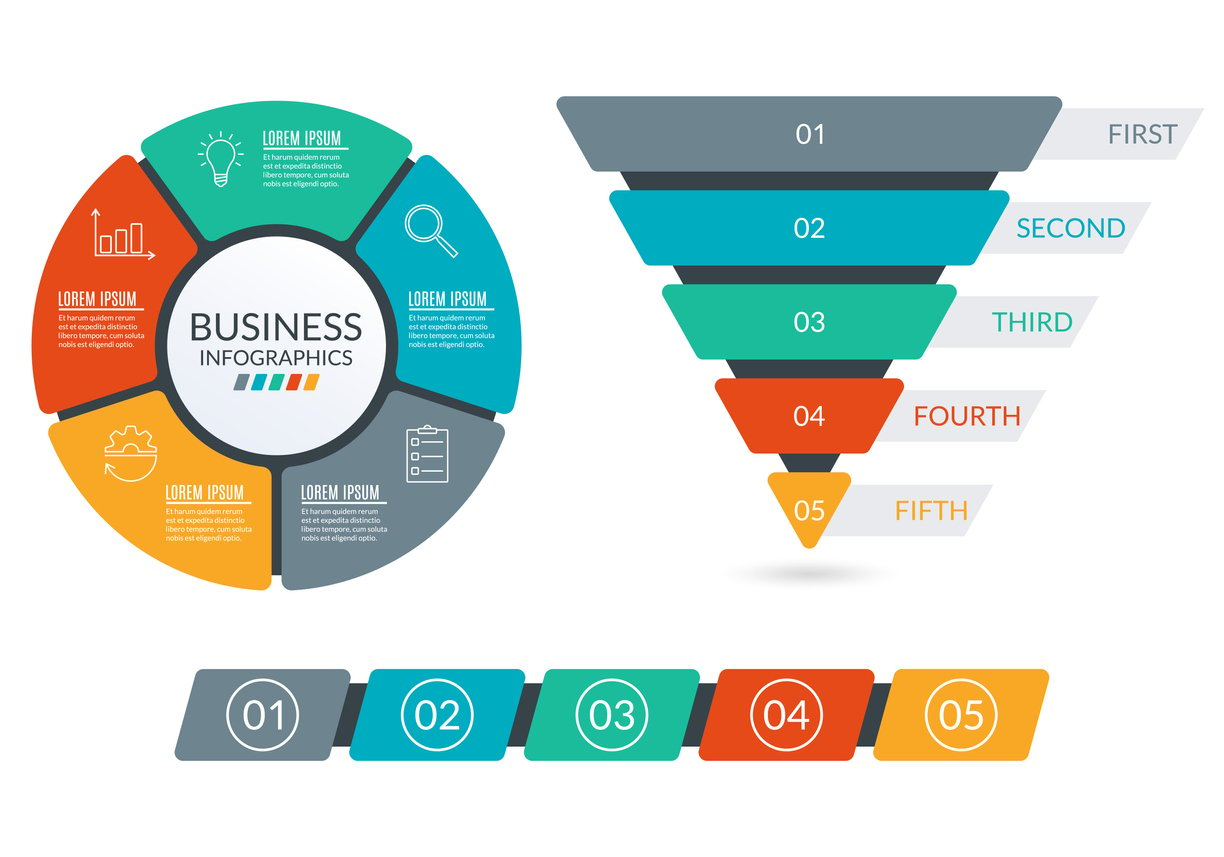
12 Actionable Ideas to Motivate Your Sales Team - A Guide
 Updated on
Updated on
 By Carlos Correa
By Carlos Correa
Carlos Correa
Carlos has been involved in the sales space for well over ten years. He began in the insurance space as an individual sales agent, managing teams as s...
learn more
Carlos Correa
Carlos has been involved in the sales space for well over ten years. He began in the insurance space as an individual sales agent, managing teams as s...
Table of Contents
Table of Contents
The beatings will continue until morale improves.

As a salesperson, it's common to feel like this is the way it goes with sales management: If you don't feel motivated to sell, you're punished rather than given direct sales motivation tools to actually, you know, motivate you to sell.
Sales motivation training doesn't have to be cringy or boring; in fact, most of it is really common sense once you see it from the perspective of being a leader to your sales team rather than a delegator or just simply a boss.
The best way to move forward with sales team motivation is to understand where your salespeople get their motivation from rather than assuming what motivates them.
The best way to find out what motivates your sales team is to ask them.
I know, novel concept, right? But it's something that sales managers don't do often enough.
Whether you're a new or seasoned sales manager, or a salesperson looking to motivate yourself or your team, these actionable tips will help you drive sales and keep happy salespeople.
Common Challenges Sales Teams Face
Sales teams face countless challenges in search of the next big sales opportunity. Regardless of which industry the salesperson is in, there are always hurdles to overcome to secure the sale. Many of these challenges are shared across industries, like poor management style, inconsistent sales approaches, and more.
However, if we look at the B2B, B2C, and SaaS sales teams, we can see the specific sales issues that these industries face.
Challenges for B2B Sales Teams
Challenge 1: Long buying cycle
It's no secret that the B2B buying cycle or process is more complex and longer than B2C, making the sales process that much more difficult.
In a recent podcast episode from WebMechanix, Lynne Capozzi makes an excellent point with regards to crafting your message for a B2B audience. To summarize, she says that we are all researchers when we are looking for a product or service. As a business, you have to make sure that your message supports that researcher's journey. The message will be different depending on what products and services you sell. For instance, if you're selling a product to a more technical audience, you have to be sure that your messaging is providing that audience with real value by providing them with real, tangible value.
Solution:
For B2B salespeople, they need to make sure they are communicating real value to prospects by demonstrating their knowledge and understanding of that prospect's industry and the specific problems that the product or service will solve for that prospect.
A CRM like Ringy can help with that process. With full lead management tools, Ringy keeps track of phone and text conversations with prospects, meaning that salespeople can always feel confident knowing they have the latest information about that prospect.
Challenge 2: Leaky sales process
Like a fisherman snagging a fish and having it get away, it's always frustrating to lose a lead, especially when that lead was promising. Because the buying process is so long, leads can easily get ignored at some point along the line or missed altogether.
Solution:
If you're still living in the world of manually updating spreadsheets, it's time to find a CRM for your small business to help manage customer information and automate administrative processes.
Having a CRM reduces the likelihood of good leads getting lost in the shuffle, and having prospects drop off at some point in the sales process. A CRM with a sales pipeline helps keep track of where prospects are in the buying process and can automatically assign quality leads to a salesperson.
Challenge 3: Personalization vs. scale
Like a tightrope that is about to break, the tension between personalization and scale is a difficult aspect of B2B sales. B2B customers want to know that you understand their business and its unique problems, and exactly how your product or service solves those problems. They want to feel like they are the only customer you have when in reality B2B salespeople likely have hundreds.
Solution:
Personalized email and text marketing campaigns that automatically fill in customer information are great ways to make generic messages a bit more personal. Combined with a CRM, you can keep track of what messages were sent to which customers and when, and ensure that customers are segmented out and receive the messages meant for them. Combined with being able to see all aspects of a customer through a 360-degree dashboard, it's easier than ever to keep a more personalized experience even when you have a large number of customers.
Challenges for B2C Sales Teams

Challenge 1: Communication breakdowns between salespeople and customers
B2C customers don't typically go through a lot of touchpoints before they finish the buying process, but communication breakdown is still a challenge for B2C sales teams. Let's say a major retail outlet is having a sale, but the sale has certain conditions that the customer has to meet before they are eligible for the discount.
What happens when the frontline B2C sales team doesn't communicate the right message to the customer? It results in confused salespeople, upset customers, and a lack of sales.
Solution:
Ensuring the correct message is communicated to all stakeholders is essential. A CRM with email marketing can help with that process. For example, an email from marketing can be sent to frontline salespeople that outlines the sale and what criteria eligible customers must have. That way, the email can be used as a resource if needed. In addition, a CRM with the latest customer data provides an easy way for a salesperson to check a customer's account to establish their eligibility for the sale. See how one tool can make such a difference?
Challenge 2: Building customer relationships
It can be tough to build customer relationships when you are a busy salesperson with not a lot of time on your hands, so being able to refer to customer information on the fly and re-acquaint yourself with a customer beforehand is akin to a secret weapon.
Solution:
Sales management software with a 360-degree customer dashboard is the most helpful tool for building customer and salesperson relationships.
Challenge 3: Lead prioritization
When you have hundreds of leads coming in, it can be hard to prioritize which ones to contact first.
Solution:
With lead management software built into a CRM with a sales pipeline, you can set marketing automation processes that help give salespeople the information they need to prioritize leads without manual labour.
Challenges for SaaS Sales Teams
Challenge 1: Overwhelming SaaS sales process
Are your SaaS sales teams feeling overwhelmed with the sales process? Chances are you need to scale your expectations with regards to your product or service and how many stakeholders are involved in the sales process.
Solution:
Start with doing some research on your industry, perhaps looking at competitor sales processes (as much as you can), and come up with a benchmark to measure what your average sales cycle length should be. This should include input from all stakeholders, including sales teams, to be successful. Your sales process will probably go through some ebbs and flows before you find the right fit, but it's worth it for efficiency and keeping your customers and sales teams happy.
Challenge 2: Wasting time on unqualified leads
It can be very frustrating for a salesperson to spend a lot of time contacting a bunch of leads with no results.
Solution:
In this day and age, there's no reason why a salesperson should waste their time on unqualified leads. Most CRMs can gather leads either natively through the platform or a lead vendor, and the CRM itself can organize those leads into categories based on criteria that you input.
From there, salespeople can be assigned specific leads to follow up with, or they can contact leads within a specific pool.
Challenge 3: Getting sales and marketing to work together
It's easy for departments to fall into silos, where they feel like they need to accomplish their own goals and lose sight of accomplishing company goals. The typical process is that marketing makes campaigns that generate leads, and they send those leads to the sales team.
But it gets more complicated when those leads aren't the greatest or the marketing team isn't bringing in enough quality leads to keep the sales team busy. Essentially, both of these departments rely on each other, so they should work together.
Solution:
A CRM can help solve this problem. Marketing gathers leads, but the sales team realizes that the quality leads (the ones that convert the most) are coming from a specific channel, for instance, Google Ads. The sales team can see where leads are coming from thanks to the CRM. From there, marketing can turn around and invest more marketing efforts into Google Ads, since that's the main driver of quality leads.
Low Motivation Factors for Sales Teams

1. Poor Management
There's nothing like poor management to demotivate sales teams. If sales rep motivation is low, it might be time to look inward. One major problem that affects sales team motivation is micromanagement. Remember, employees were hired because of their skill and proficiency to do the job that's assigned to them, so trying to control every aspect of their job for them doesn't equal a motivated employee.
2. Negative Reinforcement
Isn't it annoying to always hear about when you make a mistake, even if it's small and fixable, but you never hear a peep when you go above and beyond or do your job well? That's negative reinforcement, and it can be very damaging to an employee's morale.
Take the time to congratulate an employee when they do a good job. Even a small form of recognition, like a quick email or chat as you're walking by can do wonders for motivating your salespeople.
3. Time Tracking Does Not Equal Performance Management
There are so many studies and articles about this, but Trafft provides a great summary of time management statistics that will cause the jaws of most managers to drop. It's useless to focus all your time on the clock as a measure of productivity. Instead, measure the actual outcome of work produced. Time management is still important to help keep salespeople on track—in fact, it's essential to know how much time and effort is needed for success.
4. Inconsistency
Inconsistencies can spell disaster for sales teams. Ideally, you want your sales process to flow naturally, but follow a consistent set of tasks so that every customer can be guaranteed a stellar sales experience. When you've got a salesperson over here doing their own thing while another is over there doing something different, it's akin to bailing water out of a sinking boat while someone else is actively dumping buckets of water back in.
Sales Performance Drivers
To communicate sales performance, it can be helpful to break it down into categories. The sales performance wheel is based on over 70 years of sales research and experience and attempts to explain the influences on sales success in organizations.
You can see that the wheel is divided into eight chunks, each of which describes a driver of sales performance. But you'll also see that the wheel is divided into two parts, the organization, and the people. If you think of a wheel turning clockwise (forward), you'll notice that it's the people that drive the organization. This is important to keep in mind because when it's the other way around, the wheel goes backward.

Top 8 Sales Motivation Tips
Keeping your sales team motivated is more than providing inspiring sales motivation videos or a sales motivation story, it's about looking at what daily sales motivation is actually about and keeping that top of mind every single work day.
1. Determine Purpose
"Try not to become a man of success, but rather try to become a man of value." - Albert Einstein
Salespeople, like anyone else, want to have a purpose in their work. Rather than just focusing on numbers selling, empower your salespeople to understand how they impact their clients by working with them and how they add value to the sale by being available to the client.
2. Foster a Culture of Support and Recognition
"Before you are a leader, success is all about growing yourself. When you become a leader, success is all about growing others." - Jack Welch
When you feel appreciated and supported, then you'll be happier and more productive at work. Here are some tips to foster a culture of support and recognition in the workplace:
- Be transparent with employees
- Show your employees that you trust them
- Recognize when someone has done a good job or gone above and beyond
- Celebrate milestones whether they are big or small
3. Provide Incentives
"Show me the incentive and I will show you the outcome." - Charlie Munger
Everyone likes incentives and providing a little extra income or a prize when someone reaches a particular sales goal is a great way to motivate your sales team. It can also create healthy competition between team members and add a bit of fun to the sales process.
Here are some quick do's and don'ts when it comes to providing sales incentives:
|
Do |
Don't |
|
Offer incentives that are attractive to everyone on your team, not just top performers |
Assume that all salespeople are motivated by money |
|
Revisit your incentive package often |
Assume your incentive plan is flawless and cannot be improved |
|
Make sure incentive details are clearly written and available for salespeople to refer to |
Forget to get feedback from your sales team about your incentive plan |
4. Be a Good Sales Manager

"To lead people, walk behind them." - Lao Tsu
It's tough to be successful when you have a manager who rules by fear and not support. Here are some tips on how to be a good sales manager:
- Understand how to interact with different personalities
- Be a supporter not a delegator
- Value a culture of feedback
- Provide clear, measurable goals for your sales team
5. Provide Ongoing Training
"An investment in knowledge pays the best interest." - Benjamin Franklin
Empower your sales team by providing ongoing training and education to not only make them better salespeople but allow them to hone their existing skills and grow new ones. It may seem counterproductive to help employees add skills to their resume, but remember that employees don't typically leave a company because they have more skills, they leave a company because of their boss or the way they are treated at work.
Providing sales training opportunities just shows your sales team that you care about their development as sales professionals.
6. Provide Continuous Training and Development
Investing in ongoing learning opportunities is essential for building confidence and competence in your sales team. Sales motivation training programs can equip reps with the latest techniques and knowledge to excel in their roles. Here's how:
- Skills enhancement programs and workshops: Regular sessions help sharpen communication, negotiation, and problem-solving skills.
- Role-playing scenarios: Simulated real-world challenges prepare sales reps to handle objections, close deals, and adapt to customer needs effectively.
7. Leverage Technology and Tools
Simplify workflows and increase engagement by integrating advanced tools and technology into your team's daily activities.
- CRM and analytics tools: Streamline administrative tasks, allowing reps to focus on selling while providing data-driven insights for better decision-making.
- Gamification: Make sales activities exciting and rewarding. For example, implementing a leaderboard that updates in real time encourages friendly competition among team members.
8. Provide Constructive Feedback
Feedback is a powerful tool for sales team motivation, especially when it balances recognition with guidance.
- Celebrate small wins: Recognize individual and team achievements, no matter how minor, to boost morale.
- One-on-one coaching sessions: Personalize feedback and provide actionable advice tailored to each sales rep's strengths and areas of improvement.
- Weekly check-ins: Use these sessions to review progress, discuss challenges, and plan the week ahead.
Constructive feedback fosters a growth mindset, keeping the team motivated and focused on their goals.
Measuring the Effectiveness of Motivation Strategies
To ensure your sales motivation strategies deliver the desired results, it's essential to track and analyze their impact. By leveraging data and feedback, you can refine your approach to better support your sales team. Below are some of the key areas to focus on:
|
Metric |
Description |
|
Sales Performance Metrics |
Analyze revenue, conversion rates, and activity levels to measure tangible results. |
|
Team Morale Surveys |
Regularly gauge employee satisfaction and motivation through surveys. |
|
Correlation Analysis |
Evaluate how motivation programs influence overall sales outcomes. |
1. Tracking Sales Performance Metrics
Sales performance is a direct indicator of the effectiveness of motivation strategies. Regularly monitor key metrics like:
- Revenue: Track overall earnings to assess the financial impact of motivation programs.
- Conversion Rates: Measure the percentage of prospects converted into customers, revealing the effectiveness of your team's efforts.
- Activity Levels: Evaluate daily calls, emails, or meetings completed to ensure consistent engagement.
Analyzing these metrics provides a clear picture of whether your sales team's motivation ideas are translating into improved performance.
2. Conducting Regular Surveys to Gauge Team Morale
Understanding your team's emotional and mental state is crucial for sustaining motivation. Regular surveys help you identify areas for improvement in your motivation approach.
- Ask questions about job satisfaction, recognition, and the support they receive.
- Use anonymous formats to encourage honest feedback.
Surveys allow you to fine-tune your sales motivation training programs based on the real needs of your team.
3. Analyzing the Correlation Between Motivation Programs and Sales Outcomes
To determine the true value of your motivational efforts, analyze the relationship between these initiatives and tangible sales results.
- Compare performance before and after implementing specific motivation strategies.
- Identify patterns where increased morale or engagement correlates with improved metrics like revenue or conversion rates.
This analytical approach ensures your daily sales motivation techniques are both impactful and sustainable, driving long-term success.
Summary and Key Takeaways
Salespeople are just like any other employee in the workplace: when they feel motivated and happy, they perform their best work. It makes sense from both a human and financial perspective to keep your sales team happy; after all, they are the ones on the front lines driving sales and keeping the business running.
Understanding how and why daily sales motivation is important for sales teams will help you become a better leader, and empower your sales reps to sell more and provide a better experience to their customers.
If you're ready to provide the tools that your sales team needs to succeed, contact us today for a demo and we'll show you how our software can help.

Skyrocket your sales with the CRM that does it all.
Calling? Check. SMS? Check. Automation and AI? Check. Effortlessly keep in touch with your customers and boost your revenue without limits.

Take your sales to new heights with Ringy.
Sales in a slump? Ringy gives you the tools and flexibility you need to capture leads, engage with them, and turn them into customers.
Subscribe to Our Blog
Enter your email to get the latest updates sent straight to your inbox!
Categories
Related Articles




































































































